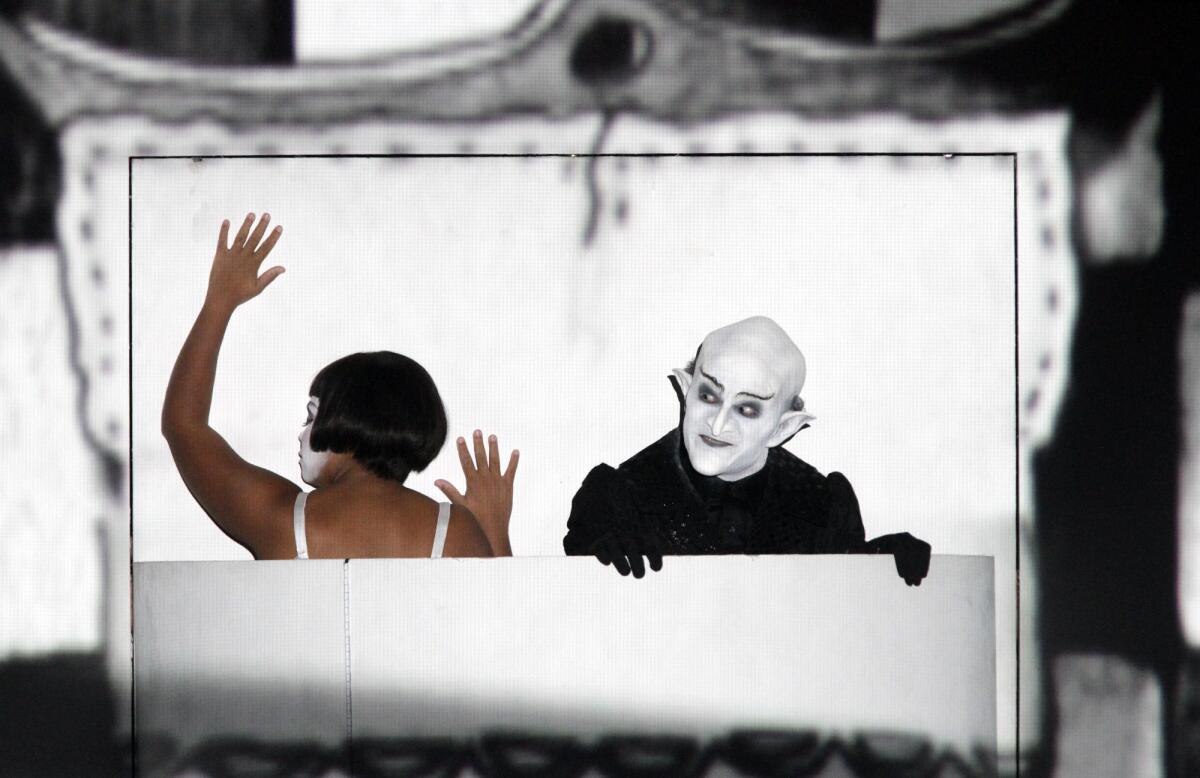Critic’s Pick: Webcast from Munich of Strauss’ ‘The Silent Woman’

The most highly anticipated opera production of the Los Angeles fall season is Australian director Barrie Kosky’s double bill of Purcell’s “Dido and Aeneas” and Bartók’s “Bluebeard’s Castle” at the L.A. Opera later this month.
Kosky’s silent movie-style “Magic Flute” was the company’s sensation last season. It is also an anomaly for a director known for flamboyance and a sharp dramatic edge.
But no other productions by Kosky, who currently heads Berlin’s provocative Komische Oper, have been presented in the U.S., and the only Kosky production on DVD is of Verdi’s “Nabucco” from Australia in 1996.
“Dido/Bluebeard” was originally created for Frankfurt Opera in 2010, and that same summer Kosky made a new production of Richard Strauss’ seldom-seen “Die Schweigsame Frau” (“The Silent Woman”) for Bavarian State Opera attracting considerable attention.
A revival of that production will now be webcast live and free from Bavarian State Opera Sunday on the company’s special website: staatsoper.tv. The 6 p.m. performance in Munich will be seen at 9 a.m. Pacific Standard Time and can only be watched live, since the company does not archive its performances.
Not only should this be of interest for checking out Kosky’s theatrical extravagance, but “Schweigsame Frau” is itself a significant curiosity. There have been few recordings and only a live one, conducted by Karl Böhm at the Salzburg Festival in 1959 and not in the best sound, is of note.
Written in 1935, the opera, a comedy with a libretto by Stefan Zweig after Ben Johnson, is that standard situation of an old man marrying a young woman. Expecting a dutiful young wife, he comes home with a handful. Strauss mines the story for sympathy (he didn’t have the most silent of wives) and startlingly moving sentiment.
But the opera is also a product of the composer’s short-lived position as head of the Nazi Party’s state music institute, which oversaw determining what was degenerate music. Given Strauss’ prominence, the Nazis briefly overlooked the fact that Zweig was a Jew (Hitler personally approved the premiere in Dresden), but after a few performances, the opera was banned and Strauss removed from his post.
The acclaimed Munich production, which had originally been conducted by former L.A. Opera music director Kent Nagano, is now in the hands of Pedro Halffter and stars Franz Hawlata, Okka von der Damerau, Daniel Behle. In the small role of Carlotta is Tara Erraught, the Irish mezzo who was the subject last summer of the “Chubbygate” scandal, in which she was belittled by British critics for looking too plump in a production of Strauss’ “Der Rosenkavalier” at Glyndebourne.
More to Read
The biggest entertainment stories
Get our big stories about Hollywood, film, television, music, arts, culture and more right in your inbox as soon as they publish.
You may occasionally receive promotional content from the Los Angeles Times.







